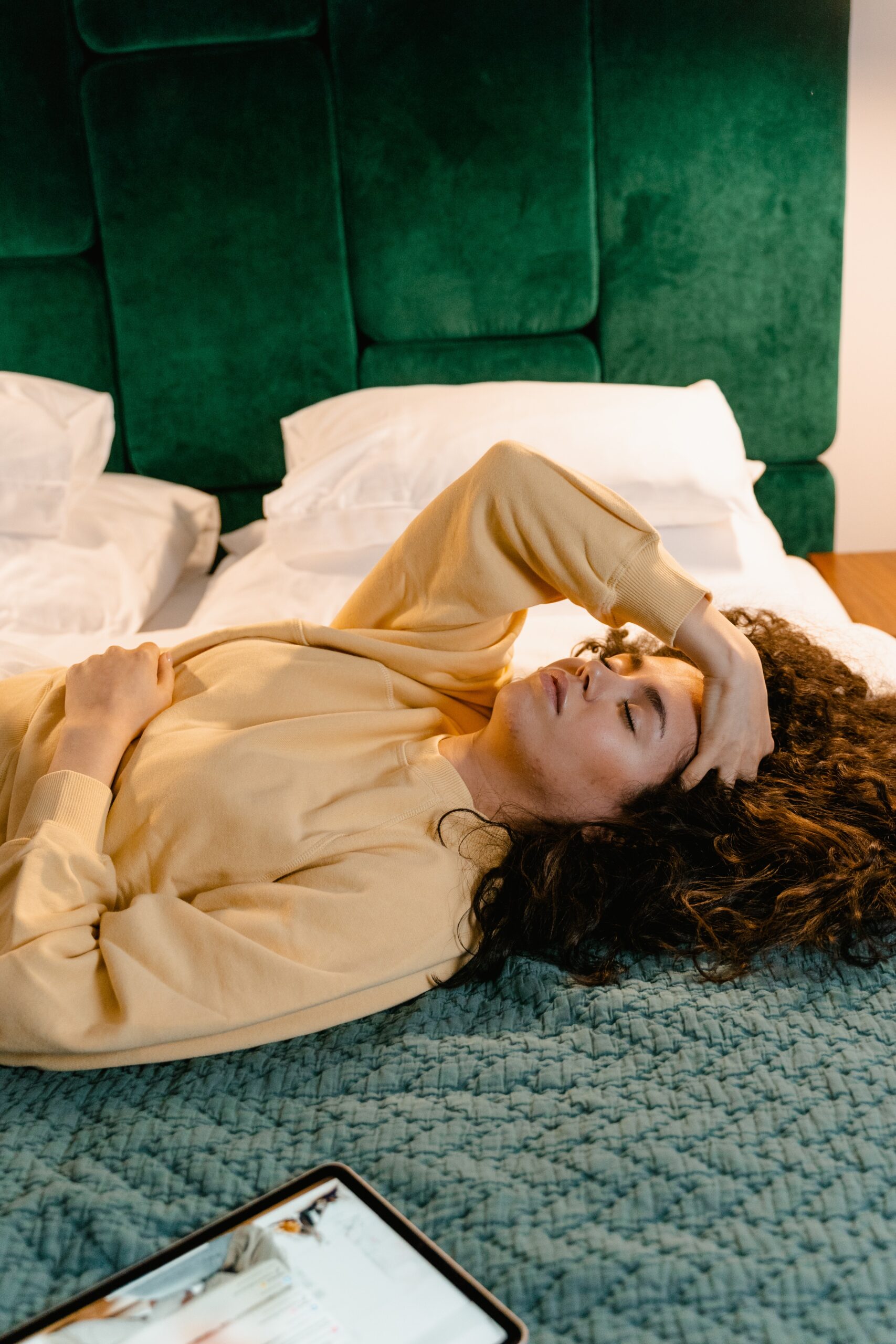Although our sleep is characterized by physical quiescence, startles, also called hypnic jerks, can occur before falling asleep, during the sleep-wake transition or during sleep. Due to their frequency in the general population and lack of major clinical impact, these are generally considered normal physiological phenomena.
A healthy lifestyle and good sleep can help reduce these sleep disorders.
On the other hand, other types of startles can have an impact on the quality of sleep and quality of life, or even be associated with certain pathologies.
How do the startles appear during our sleep?
The jerks that occur while we sleep are also called hypnic jerks. It is a form of myoclonus, that is to say muscle contraction, just like hiccups.
These muscle contractions are:
- involuntary;
- very short;
- abrupt;
- sudden.
They often occur in the first stage of sleep, a very light transitional stage that lies between wakefulness and deep sleep. During this phase of falling asleep, our muscles relax. Our brain sometimes interprets this sensation as a fall into the void , which triggers:
- a rapid and sudden contraction of a muscle or muscle group ;
- accelerated heartbeats.
This involuntary muscle contraction can:
- induce a startled awakening;
- or be light.
Sleep jumps are common even in healthy people. Indeed, it should be noted that:
- about 70% of the population is affected by hypnic jerks;
- these fits of drowsiness affect men and women without distinction;
- all ages are affected.
What are the causes of these sleep bursts?
Sleep jumps can happen for no reason.
However, certain factors increase the likelihood of experiencing a hypnic jerk. These include:
- stress and anxiety that would keep the brain active. This would then send warning signals to the body, while the muscles relax;
- tiredness ;
- lack of sleep ;
- unusual or irregular sleep schedules;
- intense physical exercise before bedtime;
- the consumption of stimulants such as caffeine, unfavorable to natural falling asleep and which prevent reaching the deep sleep phase;
- taking certain medications, such as serotonin reuptake inhibitors.
What can be the consequences of these sleep bursts?
Most of the time, hypnic jerks are harmless. Indeed, sleep onsets do not require any treatment if no other symptom is added since it is an extremely frequent phenomenon and without consequences.
However, if they occur regularly, make it difficult to fall asleep easily and encroach on sleep time, it is then advisable to talk about it with your doctor who can refer the patient if necessary to a neurologist or a doctor who specializes in sleep in order to to do further examinations. A specialist will then check whether it is a sleep disorder requiring treatment.
This is because in rare cases, hypnic jerks can be a sign of an underlying health condition such as sleep apnea, a disorder that repeatedly interrupts breathing during sleep, and can sometimes cause muscle contractions.
How to prevent jumps during sleep?
There is no fully effective method to prevent nighttime seizures.
On the other hand, here are some tips to prevent startles during sleep:
- stay hydrated throughout the day;
- adopt a regular sleep pattern;
- sleep in a quiet and comfortable room;
- controlling stress;
- limit your caffeine consumption: if you are used to drinking coffee or tea in the afternoon, try to reduce the quantities;
- listening to relaxing music before sleeping;
- perform a massage using essential oils with soothing properties, such as fine lavender essential oil;
- practice meditation or breathing exercises from sophrology to slow the heart rate and relax;
- do a calm activity that you enjoy such as coloring, reading, drinking herbal tea or taking a bath.

